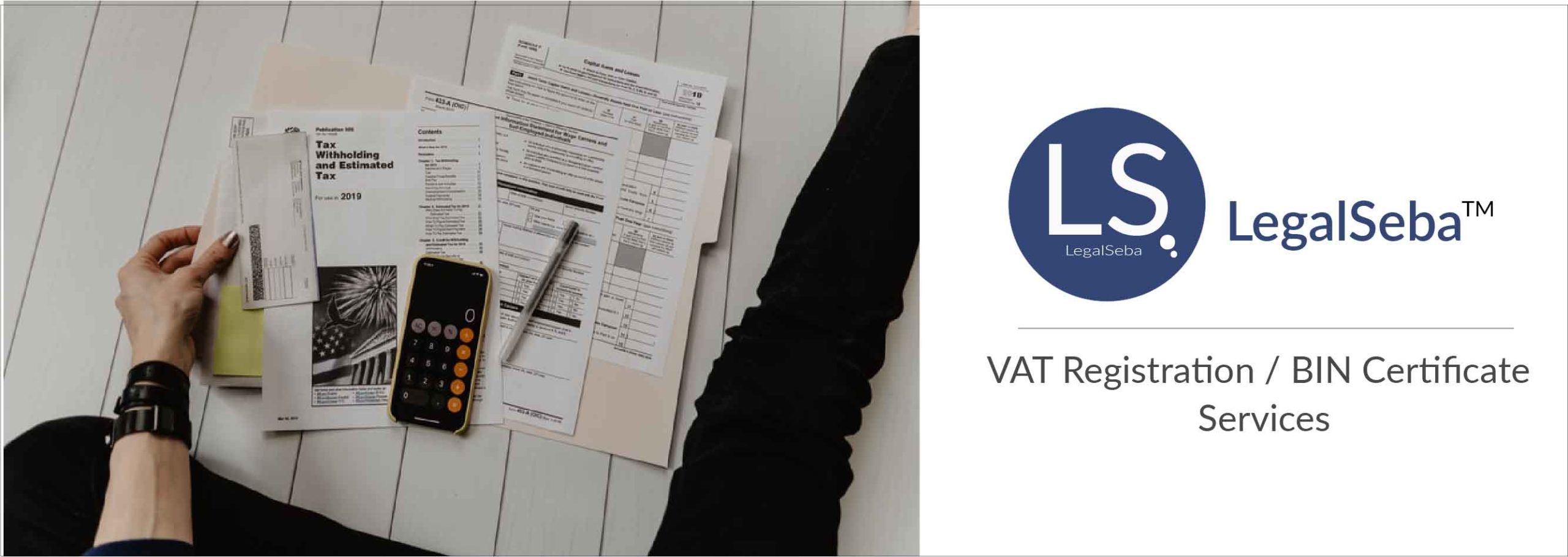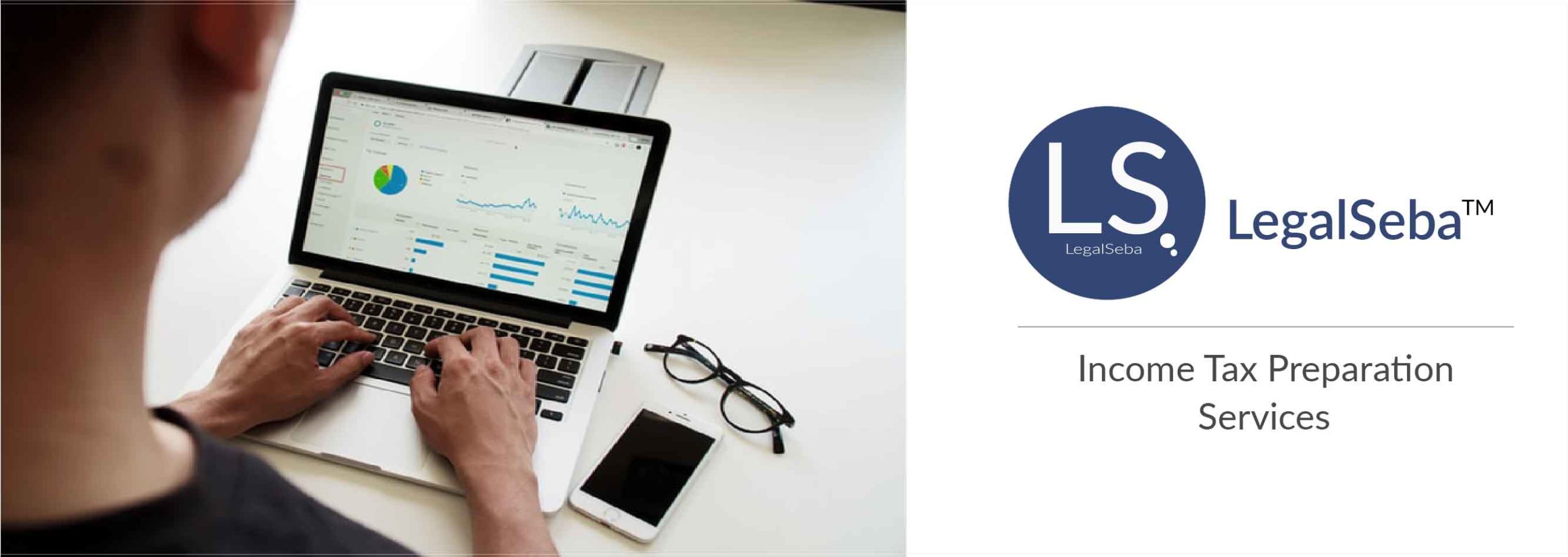3 Minutes Read
At LegalSeba.com, we provide services such as Individual tax return filing in Bangladesh to our valued clients with the help of our group of Chartered Accountants, Cost and Management Accountants (CMA), Income Tax Practitioners (ITP), Advocates, Retired government income tax officers, tax attorneys providing you the maximum benefits of knowledge and technical know-how.
As an individual tax return filing in Bangladesh can be such a complex area, it is important to find a qualified and experienced professional that understands the complexities of taxation.
LegalSeba can assist you amongst others with the following:
- Calculation of Taxable Income,
- Filing of supporting documents,
- Providing clients with statements summarizing their tax liabilities,
- Helping clients create their business plans,
- Helps to minimize tax liability,
- Land and property income tax
- Capital Gains Tax
- Residency and taxation
- Changes in residency and taxation
If an individual has been audited, LegalSeba will handle the hearings on behalf of the client’s to ensure and protect clients best interest.
LegalSeba is providing professional advices to address issues in taxation to ensure the adoption of the best practices in Bangladesh according to the rules and regulations.
The following is a step by step guidelines on the individual income tax return filing in Bangladesh:
Step 1: An overview of the Individual Income Tax in Bangladesh
A country’s great source of income is its population. The government earns by levying tax on the income generated by the population. In order to verify a person’s status of income and assets, he has to submit an annual tax return copy to the government in prescribed manner. A tax ID is to be obtained from the National Board of Revenue for taxation purpose.
Electronic Tax Identification Number Certificate (E-TIN), is an exclusive identification number provided to each assessee by National Board of Revenue. Before submission of return, a person has to collect a copy of E-TIN copy through the website prescribed by the National Board of Revenue. For E-TIN, a person needs to have a National Identification Card or Passport or Driver’s License or any legal representation proving that person is a resident of Bangladesh. If the person is not a resident of Bangladesh, then he or she has to meet with the Deputy Commissioner of Taxes.
In today’s economic development, tax issues play an increasing role in the level of service provided by the tax advisors their clients. However, tax advisors provides advices to the client about how to calculate tax liability, calculate minimum tax liability, determine surcharge, fill up the tax return, and submit the return.
The tax rates during the assessment year for individual male taxpayers are as follows:
Total Income Rate of Tax
For first Tk 250,000 0%
For next Tk 400,000 10%
For next Tk 500,000 15%
For next Tk 600,000 20%
For next Tk 3000,000 25%
For rest of the amount 30%
The minimum amount of income tax for the assessee who lives in Dhaka North and Dhaka South and Chittagong city corporation area is Tk.5,000, Tk.4,000 for other than living in city corporations and Tk.3,000 for other tax payers.
In Bangladesh, individual income tax return filing is mandatory for both resident and non-resident Bangladeshi imposed by The National Board of Revenue (NBR).
We,the LegalSeba.com, are providing services to both resident and non-resident to calculate the tax liability and file the return and submit the return.
Some of the key points of individual annual tax return filing in Bangladesh are stated below:
Step 2: Determination of the scope of income in Bangladesh:
The basis of taxation in Bangladesh basically depends on residency. Tax rate is different for resident and non-residents in Bangladesh. Residents are taxed for their global income on the other hand, non-residents are taxed only for their income received in Bangladesh.
Step 3: Whether you are a resident or a non-resident for taxation:
In Bangladesh, an individual is treated as resident depending upon their period of stay. If they have stayed a period exceeding 182 days of the financial year (July – June) or if they have stayed in Bangladesh for a period of 90 days plus 365 days in the immediate preceding four years then they will be considered as a resident.
Short term visitors and dependents of expatriates not earning any income in Bangladesh are not taxable locally and do not have to file a tax return.
Step 4: Obligation to file tax return
Our taxation services at LegalSeba.com ensure both advantage to the individual and compliance according to Bangladesh taxation policy.
As per the requirement stated in the Finance Act, 2019, if any person earned more than Tk. 250,000 during the income year then that person needs to file income return according to the sources of income. Nevertheless, the limit of maximum non-taxable income will be Tk. 300,000 for women and senior tax payers of 65 years and above age, Tk. 400,000 for physically challenged and retarded personnel .
Step 5: Timeline and place of submission of Tax Return?
This submission needed to be undertaken within the 30th November following the end of the income year (30th June of each year), which is known as “Tax day” in case of an individual.
Under the provisions of the Income Tax Ordinance 1984, a person is required to submit a return of tax on his annual income to the deputy commissioner of taxes under whose jurisdiction, the person is an assessee. This jurisdiction is stated in the E-TIN copy of that person.
Step 6: Calculation of Income and income tax rebate
After residential status assessment, a person’s annual income needed to be determined and categorized into seven heads so that his tax payable can be determined. These heads are Income from Salary, Interest on securities, Income from House property, Agricultural Income, Income from business or profession, Capital Gain income and Income from other sources.For each head, specific documents needed to be submitted as evidence of the income shown in the return.
If any person invested any amount of his income to any prescribed sources, he will be entitled to tax credit. But he has to furnish necessary documents to prove his investment was legit.
Step 7: Payment of Taxes
Any Person who is required to file a return has to pay the higher amount of tax payable by him on the basis of such return or the minimum tax payable by him. Minimum tax payable amount is determined by the National Board of Revenue. He can pay through depositing to the Central Bank of Bangladesh or if the assessee wishes to, he can attach a pay order in favor of Deputy Commissioner of taxes and attach it with his Tax Return.
In Bangladesh, Tax is paid in different ways like advance income tax, Tax Deducted at Source (TDS) and Tax payment during the submission of return under section 74 of ITO, 1984. Advance tax is payable through treasury challan or pay order. The advance tax is paid on 15th day of September, December, March and June. TDS is deducted at the time of payment salary, rent, interest, dividends etc. Then it is paid to the government by pay order or treasury challan.
As per this Ordinance, a person has to pay tax in advance during the income year if his total income of the latest income year has exceeded 400,000 taka. Advance tax shall be payable in four equal installments on the 15th day of September, December, March and June of the financial year for which the tax is payable.
After calculating the amount of income tax every person shall deposit the amount to the govt. exchequer through pay order, treasury challan and submit duly signed and verified return form along with the necessary documents to relevant tax circle.
Step 8: What documents are required to submit with tax return?
A person has to furnish the description of his income, investment and his assets and liabilities in the particular forms prescribed by National Board of revenue.
Step 9: What are the consequences for failure to submit Tax return?
If an assessee fails to submit return then he will be treated as assessee in default by the rules of Income Tax Ordinance, 1984 and he would have to pay penalties for such action. Also, he will be liable to pay additional charges for continuing default period. Various regulatory bodies of Bangladesh require tax acknowledgement receipt for authorization purpose and this document can be obtained by submitting tax return.
Step 10: Obtain tax Clearance certificate
In relation to Individual tax payer in Bangladesh, tax clearance certificate means a document issued by the National Board of Revenue (NBR)confirms that an individual is in compliance with government tax requirements and has no tax liability under the Income tax ordinance, 1994. In Bangladesh, a tax clearance certificate is required when tendering for government business contracts, seeking for citizenship, residency or for the extension of work permits etc. Besides, Tax clearance certificate is also required by an expatriate leaving Bangladesh during his departure from Bangladesh, if he is not likely to return to Bangladesh. The expatriate maybe required to show the tax clearance certificate at the airport.



